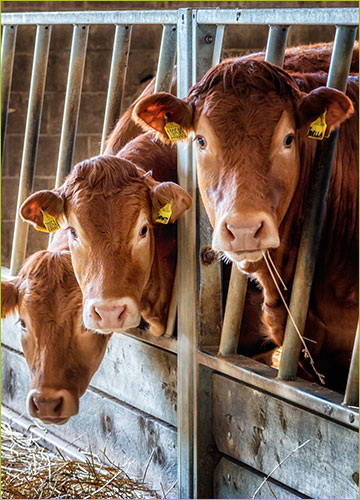Vegan politics is here to stay
It looks like veganism is here to stay: An increased shift to veganism can be seen socially and commercially, as well as politically, and could become more prominent in this decade. Veganism, however, is not a new philosophical belief, but one with a diverse set of principles that have led to its increasing popularity.
For many years, veganism revolved around a single issue — the ethical and humane treatment of animals. Today, many people considering a transition to veganism are doing so because of the role that eating meat plays in fueling climate change.
Studies have shown a link between red meat and climate change. According to a study published by the World Resources Institute, reducing heavy meat consumption, especially beef and lamb, would result in a per capita food and land use-related reduction in greenhouse gas emissions of between 15% — 35% by 2050. Going vegetarian could reduce those per capita emissions by half.1

Then there’s the increased focus on healthy eating. Over the years, plant-based diets have been shown to reduce the risk of developing a number of potentially dangerous health conditions. Therefore, veganism has also gained in popularity over the years as people search for ways to maintain a healthy diet.
Interestingly enough, vegan political views appear to be linked to one or the other political party. People whose stances on issues are more conservative are less likely to embrace veganism or vegetarianism than are liberals. According to data collected from a 2018 Gallup Poll, liberals are 2.5 times more likely to be vegans than are conservatives with about 11% identifying as vegetarians and 5% as vegans vs 2% of conservatives.2
Some important vegans in politics today include Congressman Adam Schiff from California, Eric Adams, Democratic state senator from New York, Cory Booker, Democratic senator from New Jersey, former president Bill Clinton, and former vice-president Al Gore.
How does diet translate to the greater good?
Meat-heavy diets leave a bigger carbon footprint than plant-based foods. Producing beef uses more land and fresh water and generates more greenhouse gas emissions per unit of protein than any other commonly consumed food.3 This fact alone has added a new incentive for people to eliminate their meat consumption and has had an effect on shaping vegan political views.
Reduce meat consumption, and both the environment and climate will benefit.

Activism is the key
Over the next few decades, consuming animal products is going to become more and more of an issue in mainstream politics, and the political stances that the vegan community is going to take will revolve around several important issues including the ethical treatment of animals, climate change, halting the degradation of the environment, and public health.
Political activism on the part of today’s youth, led by activists like Greta Thunburg, are sure to play a big role in helping to shift the perception of veganism from a fad to a way to help create a sustainable future and improve public health.
Finally, taking care of your body by eating a healthy vegan diet can have some unexpected but positive results: Get that “vegan glow” as your skin becomes free from chemicals, hormones, and other toxins often found in meat-based diets.
References
1 Studies Show a Link Between Red Meat and Climate Change, News | Climate Central.
2 Snapshot: Few Americans Vegetarian or Vegan, News | Gallup Inc.
3 ibid
NOTE: The Climate Central, and Gallup Inc., have not reviewed or approved the above article.
